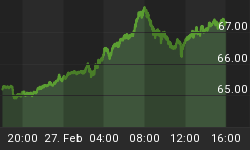As the health of much of the global economy weakens on a daily basis, political leadership increasingly ignores the source of the malady and instead focuses on short term "band-aid" remedies. These measures which may buy a few months, or years, of relative well being, will convince the public that problems have been solved and will thereby take pressure off governments to make the needed structural changes.
The recently announced $1 trillion EU bailout is a perfect example of this "band-aid" approach. The just concluded general election in the United Kingdom is another. The inconclusive UK result, which creates a Conservative/Liberal Democrat coalition, will be an unhappy, unquestionably temporary arrangement. Similarly, the EU bailout will continue to infuriate Northern Europeans, who may ultimately push for a breakup of the Union.
NuLabour (what the center-drifting Labour Party of Tony Blair has been branded) took a spectacular beating as a result of the clumsy stewardship of now former Prime Minister, Gordon Brown. Mr. Brown, whom I knew as a political bruiser in his early days in the House of Commons, had led Britain far down the road to economic ruin. As a very powerful Chancellor of the Exchequer under Tony Blair, he introduced many stealth taxes to finance a wave of high government spending. Seemingly operating as an unelected Prime Minister, he unleashed massive spending programs and interfered with UK banks in ways that worsened the effects of the financial crisis.
After Brown formally succeeded Blair in June of 2007, he soon became one of the most unpopular Prime Ministers in more than a century. The fact that David Cameron and the Conservatives were unable to capitalize on this weakness to secure a massive victory must be seen as a major failure.
Furthermore, Cameron was so anxious for personal power that he accepted a power sharing arrangement with the Liberal Democrats, a party with many key views to the left of NuLabour. This will lead to damaging compromises that, over time, will likely threaten both his parliamentary and grass roots support. Indeed cracks already are showing in the Conservative ranks.
The fragile coalition likely will have little appetite for the tough economic decisions that need to be made, including the adoption of austerity measures that must surely accompany any meaningful attempt to curb the unhealthy deficit. This political paralysis will leave the UK increasingly exposed to default and economically ruinous inflation. Those deemed to be responsible for any continued economic weakness will likely to be voted out in the next election, which could come as soon as 12 months. Labour's status as the opposition party may be brief.
In short, personal ambition has driven Cameron to fall into a major political trap. He would have been well advised to shun a coalition and leave the political costs of acute austerity and abject poverty to a NuLabour/Liberal Democrat coalition who would be cast out at the next election, leaving a much stronger and unencumbered Conservative Party in power for years to come.
The massive EU/ IMF band-aid to insulate default contagion will likely share a similar fate. The move, which will prevent the needed restructuring of the EU's "Club Med" countries, will destroy the Euro and unleash massive inflation. The furious spike in gold prices in the days after the EU capitulation indicates the depth and breadth of this consensus. Worse yet, in exchange for sowing the seeds for disunion, the bailout will achieve nothing significant.
The package may well insulate Greece from market default for some 18 months, but it will do little to change Greek habits. Even at almost a trillion dollars, it will prove insufficient to meet the likely cumulative needs of Portugal, Spain, Italy, Ireland, France and the UK.
Furthermore, despite their leaders' willingness to protect the Club Med and the cohesion of the EU, the German population is increasingly angry. Indeed, as a result of her support for the Greek bailout, Chancellor Merkel suffered a serious electoral setback on May 9th.
In short both the UK conservatives and the EU appear to have been so tempted by achieving or retaining political power within their failed economic models that they have fallen into electoral traps that likely will threaten their political survival within the coming year. They may have bought themselves some time, but little else.
Click here for a description of Peter Schiff's best-selling, just-released book, How an Economy Grows and Why it Crashes. For in-depth analysis of this and other investment topics, subscribe to The Global Investor, Peter Schiff's free newsletter. Click here for more information.















